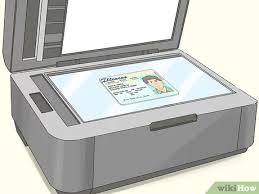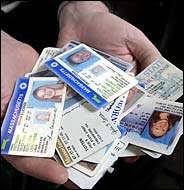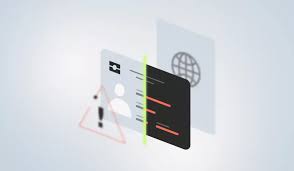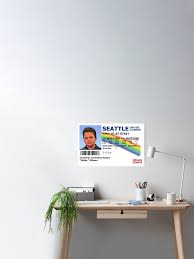British Columbia Fake ID
Table of Contents
- Introduction to Novelty IDs
- Defining novelty IDs
- Difference between real and novelty IDs
- Legality concerns and disclaimers
- Product Features of British Columbia Novelty IDs
- Realistic designs and materials
- State-of-the-art holograms and security features
- Quality printing and card durability
- Customization options: Name, birthdate, and photo
- Understanding the Market for Novelty IDs
- Historical demand for fake IDs and novelty items
- The cultural significance of novelty IDs
- Market segmentation and demographic analysis
- Target Audience for British Columbia Fake/Novelty IDs
- Age groups: College students, event-goers, collectors
- Regional demand: British Columbia and beyond
- Consumer motivations: Entertainment, collection, and more
- Legal Considerations and Ethical Issues
- Legal disclaimers on the use of novelty IDs
- Risk of misuse and potential consequences
- Ethical responsibility of sellers and buyers
- Key Competitors and Market Trends
- Leading manufacturers in the novelty ID space
- Innovative trends in ID technology and designs
- Comparison of products on price, quality, and legality
- Quality Assurance and User Experience
- Ensuring product authenticity and satisfaction
- Customer reviews and feedback
- Safety tips for buying and using novelty IDs
- Conclusion: Future of British Columbia Novelty IDs
- Predictions for the novelty ID market
- Potential technological advancements
- The evolving role of novelty IDs in modern culture
1. Introduction to Novelty IDs
Defining Novelty IDs
In today’s globalized world, identification has become an essential part of our daily lives, from verifying age to gaining access to certain venues or services. However, novelty IDs, sometimes colloquially referred to as “fake IDs,” serve a different purpose. Unlike real government-issued identification, novelty IDs are primarily produced for entertainment, props, or collectible purposes.
A novelty ID may replicate the look of a real identification card from a place like British Columbia (BC) but comes with important distinctions such as being marked for non-official use. These cards are often sought by hobbyists or individuals seeking to have fun in a controlled setting—be it for themed parties, props in movies, or novelty gift items.
Difference Between Real and Novelty IDs
A real ID is issued by a government authority to authenticate the holder’s identity. It is legally recognized and used for multiple purposes like entering into contracts, buying age-restricted products, or driving a car. Novelty IDs, by contrast, are mock versions and are not meant to serve any legal purpose. These cards often carry disclaimers stating that they are not valid forms of identification to avoid legal complications.
It’s crucial to differentiate between a legal novelty ID used for entertainment or collection and illegal fake IDs, which attempt to deceive authorities or businesses.
Legality Concerns and Disclaimers
The production and sale of novelty IDs are legal in many jurisdictions, provided they are clearly marked as not for legal use. In contrast, producing or using fake IDs with the intent to deceive is a criminal offense in British Columbia and elsewhere. Consumers should be aware of the law and understand that misusing a novelty ID can lead to serious legal consequences.
2. Product Features of British Columbia Novelty IDs
A high-quality British Columbia novelty ID card stands out due to several features that mimic the aesthetics of real BC identification, making it a popular choice for those seeking realistic-looking, yet legally safe, novelty products.
Realistic Designs and Materials
One of the core features of British Columbia novelty IDs is their striking resemblance to real IDs. Manufacturers use high-quality plastic materials, similar to those used in official documents, to create a realistic texture and weight. The design closely mimics official BC cards, including background images, fonts, and colors.
State-of-the-Art Holograms and Security Features
British Columbia’s real IDs incorporate various security features, such as holograms, UV inks, and barcodes, to prevent counterfeiting. To make the novelty IDs appear authentic, sellers often replicate these security features as closely as possible. Though these features are not functional, they give the ID a more polished and believable appearance, which appeals to collectors and enthusiasts.
Quality Printing and Card Durability
The printing technology used in creating British Columbia novelty IDs is often of a professional standard, resulting in high-resolution images, clear text, and color consistency. Additionally, these cards are built to last, made from durable materials that resist wear and tear, much like a real ID.
Customization Options: Name, Birthdate, and Photo
Many consumers prefer novelty IDs with personal touches. The ability to customize the ID with your name, birthdate, and photo makes the product more engaging. Some providers allow full customization, where users can input their own details, ensuring a unique and personalized experience.
3. Understanding the Market for Novelty IDs
Historical Demand for Fake IDs and Novelty Items
The demand for novelty IDs is not a new phenomenon. Historically, fake IDs were used by underage individuals to access age-restricted goods like alcohol or entry into adult venues. However, as legal repercussions have heightened, the market has shifted towards novelty uses, with people seeking realistic-looking IDs for entertainment purposes.
The Cultural Significance of Novelty IDs
In many cultures, obtaining a novelty ID has become somewhat of a rite of passage, particularly among students and young adults. While novelty IDs may seem frivolous to some, they often symbolize independence and the desire to explore adulthood’s freedoms. Collectors also find value in owning IDs from various regions, including British Columbia, for their craftsmanship and regional uniqueness.
Market Segmentation and Demographic Analysis
The market for novelty IDs is diverse, catering to various demographics. College students, festival attendees, collectors, and even filmmakers seeking realistic props contribute to the demand for these products. Understanding who is buying and why they are buying is key to recognizing the value of British Columbia novelty IDs in today’s market.
4. Target Audience for British Columbia Fake/Novelty IDs
Age Groups: College Students, Event-Goers, Collectors
The primary audience for British Columbia novelty IDs often consists of younger individuals, particularly college students and event-goers who want the thrill of owning an ID that mirrors the real thing. Another growing demographic is the collector community, which values novelty IDs for their craftsmanship and unique designs.
Regional Demand: British Columbia and Beyond
While the product may target British Columbia specifically, there is demand beyond this region. People in other parts of Canada, the United States, and even Europe are interested in owning novelty IDs from different provinces as a fun and unique collectible.
Consumer Motivations: Entertainment, Collection, and More
The reasons why individuals purchase novelty IDs vary widely. Some consumers are looking for a fun novelty item to use at parties or themed events, while others might be collectors interested in obtaining IDs from various places. Filmmakers, event planners, and hobbyists may also find these products useful for specific professional needs.
5. Legal Considerations and Ethical Issues
Legal Disclaimers on the Use of Novelty IDs
For both buyers and sellers, it’s important to ensure that all novelty IDs include clear disclaimers that they are not to be used for any illegal purposes. Misuse of these products, such as presenting them as real IDs, could lead to severe penalties under the law.
Risk of Misuse and Potential Consequences
Though marketed for novelty purposes, there’s always the risk that some individuals might attempt to use fake IDs for illegal purposes, such as entering restricted areas or purchasing age-restricted goods. Misuse can lead to legal trouble, including fines, criminal charges, and even jail time.
Ethical Responsibility of Sellers and Buyers
Sellers of novelty IDs must take steps to educate their customers about the proper use of their products. Transparency and responsibility are key to maintaining a trustworthy business in this niche. Buyers, likewise, should adhere to legal guidelines and ethical considerations when purchasing and using these products.
6. Key Competitors and Market Trends
Leading Manufacturers in the Novelty ID Space
Several companies lead the way in the production of high-quality novelty IDs, offering competitive pricing and advanced customization options. By understanding the competition, businesses can improve their offerings and better cater to consumer demands.
Innovative Trends in ID Technology and Designs
As technology advances, so do the techniques used to create novelty IDs. New trends include advanced holographic imaging, UV-reactive inks, and micro-printing, which can all be used to create a highly realistic look and feel.
Comparison of Products on Price, Quality, and Legality
When comparing British Columbia novelty IDs to those from other regions or companies, it’s important to evaluate price points, quality of materials, and adherence to legal requirements. The balance of these factors will influence consumer choices.
7. Quality Assurance and User Experience
Ensuring Product Authenticity and Satisfaction
A reliable manufacturer or seller should guarantee that the products they offer meet a certain standard of quality. This includes ensuring that the materials used are durable and that the final product closely matches the advertised design.
Customer Reviews and Feedback
One of the most important indicators of a product’s quality is customer feedback. Sellers of British Columbia novelty IDs often rely on reviews to understand what is working well and where they can improve.
Safety Tips for Buying and Using Novelty IDs
Buyers should always take precautions when purchasing novelty IDs online. Ensuring that the seller has good reviews, a clear return policy, and adheres to legal guidelines are key to avoiding scams or legal trouble.
8. Conclusion: Future of British Columbia Novelty IDs
Predictions for the Novelty ID Market
The demand for novelty IDs is likely to continue as long as people enjoy the fun and creative possibilities they offer. As technology improves, the ability to produce even more realistic-looking novelty IDs will grow, further driving interest.
Potential Technological Advancements
In the future, we may see the integration of even more advanced features into novelty IDs, such as digital watermarks or holographic QR codes. These innovations could add a new layer of interactivity to these products.
The Evolving Role of Novelty IDs in Modern Culture
As novelty IDs become more mainstream and accepted for legitimate purposes like entertainment and collection, their place in modern culture will solidify. These products, once shrouded in controversy, may continue to shift toward more positive, recreational uses.
 Where to Buy Kansas Fake ID
Where to Buy Kansas Fake ID
 British Columbia Fake ID
British Columbia Fake ID
 Michigan Fake ID
Michigan Fake ID
